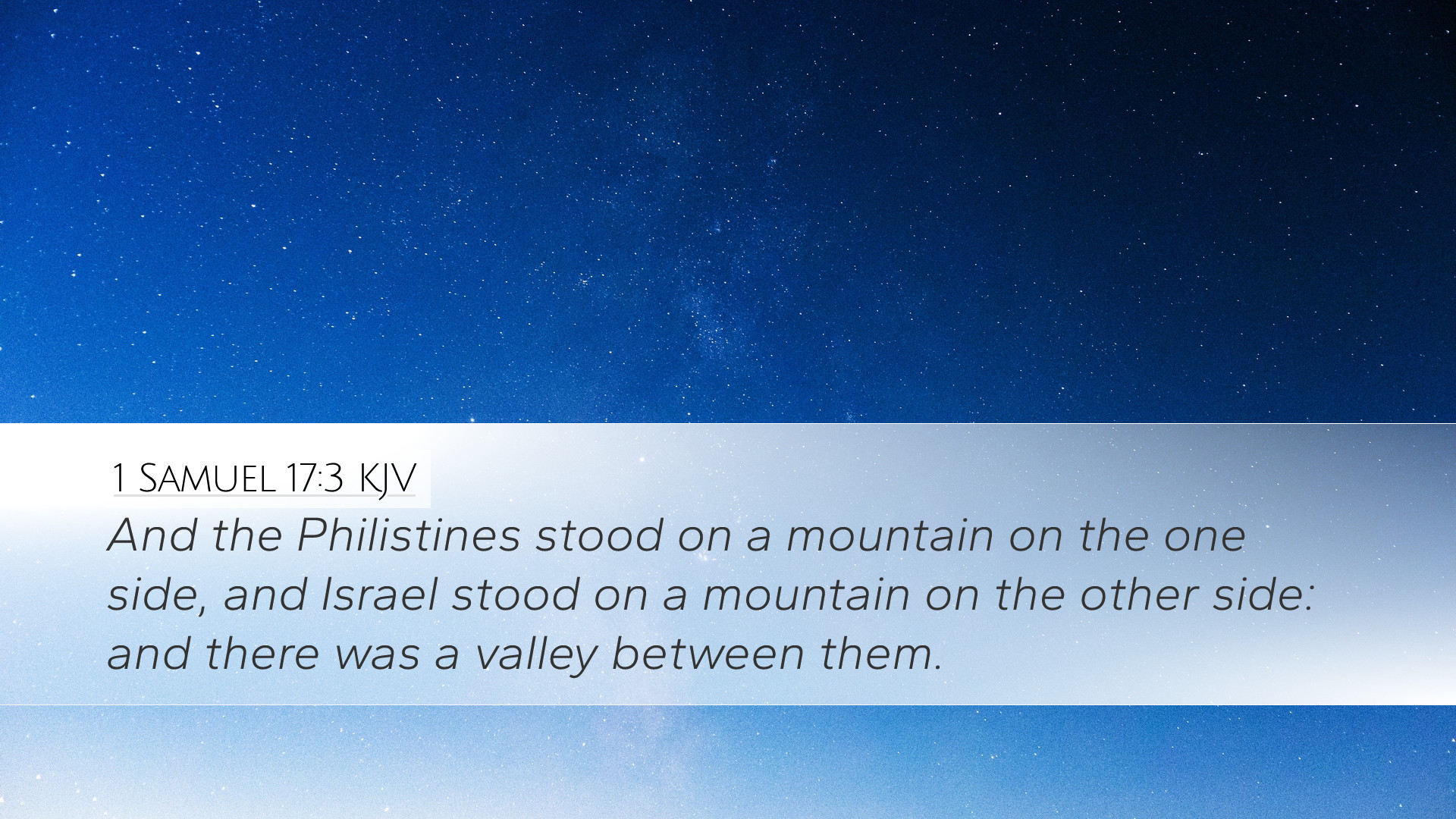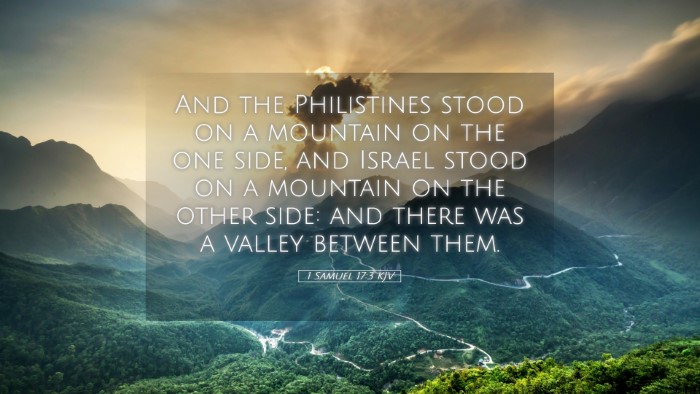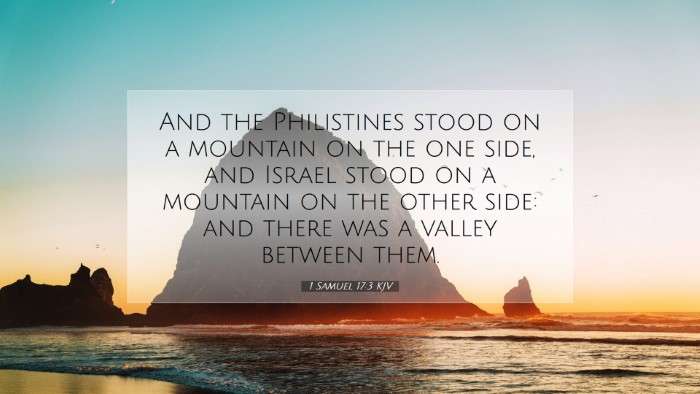Commentary on 1 Samuel 17:3
Bible Verse: 1 Samuel 17:3
"And the Philistines stood on a mountain on one side, and Israel stood on a mountain on the other side: and there was a valley between them."
Introduction
This verse introduces the iconic conflict between Israel and the Philistines, setting the stage for one of the most famous biblical encounters: the battle between David and Goliath. The imagery presented in this verse is profound, illustrating a stark division between the two armies and foreshadowing the ensuing struggle.
Context of the Conflict
In understanding 1 Samuel 17:3, it is essential to consider the broader landscape of Israel's history during this period. The Israelites were in a cyclical pattern of sin, oppression, repentance, and deliverance, as described in previous chapters. The Philistines, a formidable enemy, had been oppressive to Israel, captivating them into despondence and fear.
-
Geographical Significance:
The identification of mountains on either side and the intervening valley is crucial. This geographic setting is not merely a backdrop; it is symbolic of the spiritual and military divisions between the two nations. The valley represents a battleground for both physical and spiritual confrontation.
-
Symbolism of the Division:
Matthew Henry notes that the mountains signify pride and confidence of the nations in their militaristic might, while the valley symbolizes humility and the place of confrontation where faith must be exercised. The placement of the Israelites and the Philistines visually represents the two opposing spiritual forces.
The Significance of the Valley
The valley mentioned is particularly noted by Adam Clarke as a critical element where battles are fought not only with weapons but also with faith. It is in the valleys of our lives where we often encounter our greatest challenges, much like the Israelites standing before Goliath.
Albert Barnes reflects on how the valley serves to create a sense of anticipation and fear. Both armies are aware that a confrontation must occur, highlighting a moment of tension and uncertainty that precedes any significant spiritual battle.
Insights on the Armies
The description of the armies in 1 Samuel 17:3 reflects not just a physical confrontation but also an ideological one. The Philistines, often seen as a representation of worldly power, stand opposed to Israel, who symbolizes God's chosen people.
-
Philistine Armies:
The Philistines, characterized by their advanced weaponry and tactics, represent human strength unaccompanied by faith. Their confidence in physical prowess serves as a contrast to the reliance on God that the Israelites must ultimately confront.
-
Israelite Soldiers:
The fear and trepidation of the Israeli soldiers, as highlighted in various commentaries, illustrates a lack of faith in God's ability to deliver. This moment serves as a pivotal point for young David, who emerges as a contrast to the prevailing mindset within the Israelite camp.
Theological Implications
The division of the armies at this location speaks volumes to modern readers, illustrating the ongoing battle between faith and fear. The valley becomes a spiritual metaphor for the trials that individuals face in life, emphasizing that God's presence and deliverance are often manifest in our greatest challenges.
Application for Believers
For pastors, students, and theologians, this verse offers profound insights into the nature of conflict, both external and internal. It serves as an encouragement that even amidst overwhelming odds, God's power can be demonstrated through seemingly insignificant vessels (as seen with David).
-
Encouragement in Trials:
Believers are reminded that valleys in life are not devoid of divine purpose. Just as God used David to bring victory in a seemingly impossible situation, He can do the same with us.
-
Faith Over Fear:
The narrative invites every believer to consider which side they align with—the fear of Goliath or the faith of David. It reflects the ongoing challenge to confront our 'giants' with the assurance of God's presence and power.
Conclusion
In summary, 1 Samuel 17:3 is rich in historical and theological significance. It portrays a vivid picture of the challenge faced by Israel in their confrontation with the Philistines and sets the stage for David's faith in God. As this passage transitions into the larger narrative, it resonates with believers today as they confront their own valleys and giants, encouraging reliance on God's strength.


